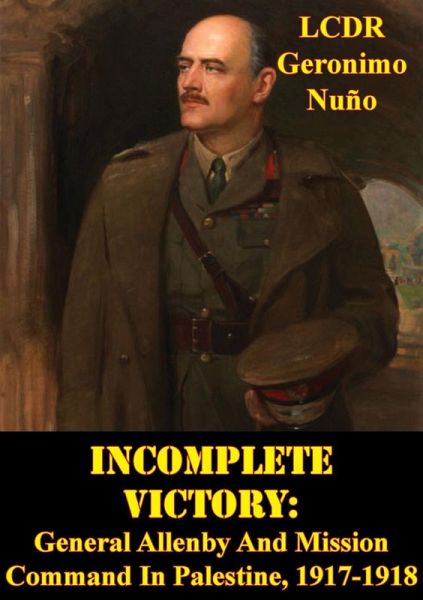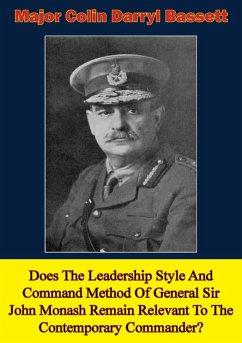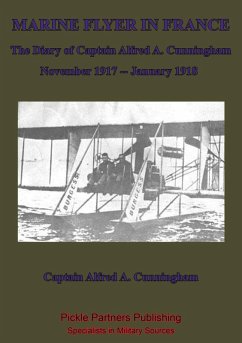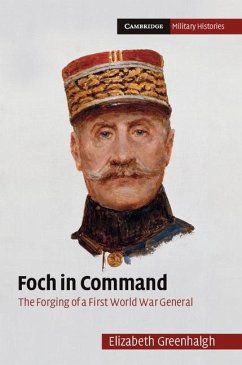
Incomplete Victory: General Allenby And Mission Command In Palestine, 1917-1918 (eBook, ePUB)

PAYBACK Punkte
1 °P sammeln!
The Palestine Campaign of the First World War exhibited a fighting style that brought with it various challenges in mission command. While General Allenby, commanding the Allied Egyptian Expeditionary Force (EEF), gained several victories in the early stages of the campaign, he did not comprehensively defeat the Turkish forces in Palestine. He drove them away from their defensive line, but they escaped, avoided destruction, and retreated north to re-establish a defense and engage the EEF at later date. This thesis argues that General Allenby did not achieve the great successes at the battles o...
The Palestine Campaign of the First World War exhibited a fighting style that brought with it various challenges in mission command. While General Allenby, commanding the Allied Egyptian Expeditionary Force (EEF), gained several victories in the early stages of the campaign, he did not comprehensively defeat the Turkish forces in Palestine. He drove them away from their defensive line, but they escaped, avoided destruction, and retreated north to re-establish a defense and engage the EEF at later date. This thesis argues that General Allenby did not achieve the great successes at the battles of Beersheba, Gaza, Sheria, and the pursuit of Turkish forces that ended with Allenby's capture of Jerusalem. Instead, Allenby had to learn how to succeed in Palestine to finally destroy the armies of the Ottoman Empire in Palestine at the battle of Megiddo in September 1918. The research in this study highlights the mission command challenges in Allenby's early campaigns and how he learned to overcome them and adapt his tactics to achieve complete victory at the battle of Megiddo. This thesis will use the tenets of mission command, consisting preparation, combined arms, prioritization of resources, and communication, to examine General Allenby's Palestine campaign. Mission command, both a function of war and a philosophy of leadership comprises one of the key facets of military thought that leaders must consider in order to achieve complete victory.
Dieser Download kann aus rechtlichen Gründen nur mit Rechnungsadresse in A, B, BG, CY, CZ, D, DK, EW, E, FIN, F, GR, HR, H, IRL, I, LT, L, LR, M, NL, PL, P, R, S, SLO, SK ausgeliefert werden.








![Vietnam Studies - Command and Control 1950-1969 [Illustrated Edition] (eBook, ePUB) Cover Vietnam Studies - Command and Control 1950-1969 [Illustrated Edition] (eBook, ePUB)](https://bilder.buecher.de/produkte/41/41860/41860580n.jpg)




